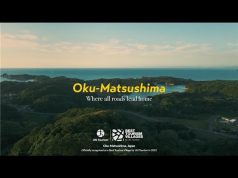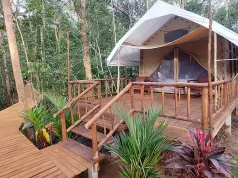
In the wake of global climate change, many hikers and outdoor enthusiasts are turning to eco-friendly items, opting for natural materials over synthetic materials. This shift towards sustainability has given rise to many brands prioritizing ecological integrity. These brands are setting new standards, leading the way in making hiking, camping, and backpacking trips more sustainable.
We’re all for sustainable products, and in this article, we will highlight a selection of brands that have proven to be conscious of the environment. As we approach the end of 2023, let us look at some of the top picks for eco-friendly hiking gear you can incorporate into your everyday life.
The Importance of Eco-Friendly Outdoor Gear: An Environmental Perspective
Our natural environment is a precious resource, and preserving it is paramount. For those who love exploring the great outdoors, the gear they choose to bring can significantly impact the environment. Many items we use in our everyday lives, including certain outdoor gear, can harm the environment. This is particularly true for items made from synthetic materials, which are not biodegradable and can persist in the environment for hundreds of years.
However, a growing range of sustainable outdoor gear is available that is kinder to the environment. These products are made from sustainable materials, ensuring your attire is as kind to the environment as it is to you. By choosing eco-friendly items made from sustainable materials, we can enjoy our outdoor adventures while minimizing environmental harm.
Key Factors Influencing Sustainability in Hiking Gear
- Materials
The materials used in the manufacturing process of hiking gear significantly influence its sustainability. Synthetic materials, such as polyester and nylon, can harm the environment due to their non-biodegradable nature and energy-intensive production process. Conversely, sustainable outdoor clothing brands prioritize organic or recycled materials. These natural materials and ethical manufacturing practices minimize the environmental impact, contributing to a greener future for outdoor adventure.
- Manufacturing Practices
When it comes to sustainable hiking gear, manufacturing practices play a significant role. Brands like Picture Organic are committed to eco-friendly processes that reduce waste and energy consumption. By embracing efficient manufacturing methods, they ensure the production process is as green as possible. Additionally, a focus on waste management is crucial. These brands contribute to a more sustainable outdoor gear industry by adopting strategies that recycle or repurpose production waste.
- Durability and Longevity
Another critical factor in the sustainability of hiking gear is its durability and longevity. The longer a product lasts, the less frequently it needs to be replaced, leading to decreased production and resource use. This principle is particularly relevant in the outdoor gear industry, where built-in obsolescence is less prevalent than in other sectors. Therefore, investing in high-quality, durable gear enhances your hiking experience and contributes to conserving our planet’s resources.
- End-of-Life Solutions
Thinking about the end-of-life of a product is an essential aspect of sustainable manufacturing. Many eco-friendly brands offer take-back programs or guides on properly disposing of or recycling gear when it’s no longer usable. These initiatives reduce waste and encourage a circular economy in the outdoor gear industry.
- Environmental Implications of the Production Location
The location of the production can also impact the sustainability of hiking gear. For instance, using synthetic materials and non-renewable resources can lead to the emission of harmful gasses. On the other hand, using natural materials like merino wool can be more environmentally friendly if produced responsibly. However, it’s also essential to consider the conditions of garment workers in these locations. Ensuring fair wages and safe working conditions is a crucial aspect of sustainability.
Recommendations for Eco-Friendly Hiking and Camping Gear
- Patagonia – Pioneer in Sustainable Outdoor Gear
When it comes to sustainable outdoor gear, Patagonia has set a high standard. They have consistently shown a deep commitment to environmental responsibility as an outdoor wear company. Their sustainability efforts are evident in their responsibly sourced materials, including recycled wool. This commitment extends to Patagonia’s manufacturing practices that aim to minimize environmental impact.
Patagonia blends innovation with eco-consciousness, resulting in gear that enhances outdoor adventures while respecting the planet. From mountain biking apparel to hiking essentials, Patagonia ensures that its products are packaged in recyclable packaging, furthering its commitment to a greener planet.
- Solar Lantern – Renewable Energy for Adventurous Nights
Solar lanterns are a must-have for eco-friendly outdoor adventures. By harnessing the sun’s power, these lanterns provide a sustainable and reliable light source, minimizing the need for disposable batteries. We recommend three exceptional brands for their commitment to renewable energy and sustainability.
Goal Zero, BioLite, and MPOWERD all offer solar lanterns that are durable, lightweight, and efficient. Their designs are perfect for camping and hiking trips, ensuring you can sustainably navigate even the darkest trails.
- REI – The Future of Outdoor Gear
REI is another key player in the sustainable outdoor gear market. This eco-conscious brand is known for its broad range of clothing and equipment that aligns with sustainable principles.
The company’s commitment to sustainability is reflected in its operations and products, where every effort is made to minimize environmental impact. By choosing REI, you can equip yourself with high-quality, sustainable gear for your next outdoor adventure while supporting a brand that values the environment.
- Picture Organic – Redefining Sustainability in Hiking Gear
When it comes to redefining sustainability in hiking gear, Picture Organic stands out. As a certified B corporation, their commitment to environmental protection is undeniable. They utilize non-toxic dyes in their manufacturing process and are dedicated to sustainable travel, encouraging their customers to explore nature responsibly.
Picture Organic is committed to creating products that are stylish, durable, and kind to the environment. Their unwavering commitment to sustainability makes them a top choice for outdoor enthusiasts seeking eco-friendly gear for hiking.
- Fjallraven – Business with Consciousness
Fjallraven is a brand that prides itself on its consciousness in business. With its commitment to producing sustainable clothing and accessories, Fjallraven has set a high standard for eco-friendly materials and practices in the outdoor gear industry. Their dedication to improvement and making the right decisions reflects their motto, “room for improvement.”
Fjallraven’s sustainability efforts extend beyond their products to their operations. They consistently strive to minimize their environmental footprint, ensuring their products are durable, functional, and kind to the planet. By choosing Fjallraven, you’re not just purchasing quality gear for your outdoor adventures but also supporting a brand that prioritizes sustainability.
- Vaude – Warmth with a Green Conscience
As a conscious gear company, Vaude has been pioneering using eco-friendly materials to produce outdoor wear. One of the most notable products in their range is the Strathcona Stretch Outdoor Trousers for Men. Made almost entirely from recycled fabrics, these pants are perfect for hiking. The stretchy material enhances comfort and mobility, allowing you to conquer the great outdoors easily.
Vaude’s commitment to sustainability extends beyond the manufacturing process. They are a member of the Fair Wear Foundation and strictly adhere to the International Labour Organization’s Four Fundamental Freedom principles. They are also bluesign certified, meaning their products meet the highest standards for environmental, health, and safety performance. You can find many eco-friendly hiking gear on their Amazon Store, including durable sleeping bags and other essential camping equipment.
- Sustainable Camping Stove – Fuel Efficiency at its Best
A few brands stand out when it comes to sustainable outdoor cooking solutions. One of the most notable is GoSun, which offers a range of innovative solar-powered stoves. These stoves use abundant, renewable energy from the sun, eliminating the need for fossil fuels. They also come in compact, portable designs, ideal for hiking or camping trips.
Another noteworthy brand is Trangia, renowned for its ultralight alcohol stoves. These stoves are designed to be lightweight, compact, and extremely fuel-efficient. Last but not least, MSR (Mountain Safety Research) offers a range of sustainable stoves and cookware. Known for their dedication to ethical and sustainable production practices, MSR’s products are a great choice for the eco-conscious adventurer. Besides, their supply chains ensure the use of repurposed fabric in their Noches sleeping bag range and sustainable tents, making them a truly green choice.
Rounding Up: The Shift towards Sustainable Outdoor Adventures
As we tread further into the 21st century, the shift towards sustainable outdoor adventures is more palpable than ever. This is evident in the growing number of sustainable outdoor clothing brands making their mark in the market. These ethical outdoor clothing brands are not just focusing on creating eco-friendly outdoor clothing and are committed to sustainable business practices. Their system, built on sustainability principles, reshapes the outdoor apparel industry.
When planning your future purchases, there are several crucial considerations to remember. Firstly, look for outdoor gear like hiking pants or waterproof jackets made from sustainable fabrics. Brands using recycled plastic bottles, Tencel lyocell, or ocean plastic in their production methods are a great choice. Animal welfare should also be a priority, making brands using sustainable materials, such as birch wood for a cutlery set, an excellent option. Secondly, consider the brand’s labor practices and commitment to sustainable fashion. Brands that are climate-neutral certified and support conservation projects are leading the way. Finally, consider the versatility of the gear. Can it transition seamlessly from a hiking trail to everyday wear? Brands offering a repair service for their products or producing items like a sustainable sleeping bag or a filtration system for bottle filters demonstrate a commitment to durability and multi-use gear.





